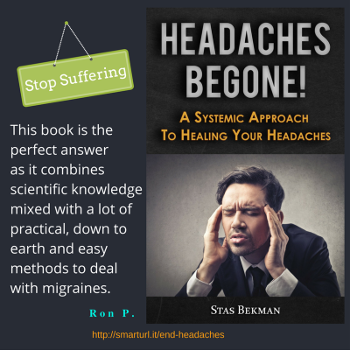The Departure. Part 4
Description
This section is from the book "Old Saint Paul's. A Tale Of The Plague And The Fire", by William Harrison Ainsworth. Also available from Amazon: Old Saint Paul's.
The Departure. Part 4
Not choosing to incur the risk of passing this contagious load, Leonard retraced his course as far as Holborn Conduit, then turning into Seacole-lane, and making the best of his way to Fleet Bridge, crossed it, and entered the great thoroughfare with which it communicated. He had not proceeded far when he encountered a small party of the watch, to whom he showed his certificate, and recounted the fate of the driver of the dead-cart. At Temple Bar he was again obliged to exhibit his passports; and while there detained, he observed three other horsemen riding towards them from the further end of Fleet-street.
Though much alarmed by the sight, Leonard did not communicate his apprehensions to his companions, but as soon as the guard allowed him to pass, called out to Blaize to follow him, and urging his horse to a quick pace, dashed up Drury-lane. A few minutes' hard riding, during which nothing occurred to give the apprentice further uneasiness, brought them to a road skirting the open fields, in which a pest-house had just been built by the chivalrous nobleman whose habitation in Berkshire they were about to visit. With a courage and devotion that redound more to his honour than the brilliant qualities that won him so high a reputation in the court and in the field, Lord Craven not merely provided the present receptacle for the sick, but remained in London during the whole continuance of the dreadful visitation; "braving," says Pennant, "the fury of the pestilence with the same coolness that he fought the battles of his beloved mistress, Elizabeth, titular Queen of Bohemia, or mounted the tremendous breach of Creutznach." The spot where this asylum was built, and which is the present site of Golden-square, retained nearly half a century afterwards, the name of the Pest-house Fields. Leonard had already been made acquainted by Doctor Hodges with the earl's generous devotion to the public welfare, and warmly commenting upon it, he pointed out the structure to Amabel. But the speed at which she was borne along did not allow her time to bestow more than a hasty glance at it. On gaining Hyde-park Corner, the apprentice cast a look backwards, and his apprehensions were revived by perceiving the three horsemen again in view, and evidently using their utmost exertions to come up with them.
While Leonard was hesitating whether he should make known their danger to Amabel, he perceived Solomon Eagle dart from behind a wall on the left of the road, and plant himself in the direct course of their pursuers, and he involuntarily drew in the rein to see what would ensue. In another moment, the horsemen, who were advancing at full gallop, and whom Leonard now recognised as the Earl of Rochester, Pillichody, and Sir Paul Parravicin, had approached within a few yards of the enthusiast, and threatened to ride over him if he did not get of the way. Seeing, however, that he did not offer to move, they opened on either side of him, and were passing swiftly by, when, with infinite dexterity, he caught hold of the bridle of Rochester's steed, and checking him, seized the earl by the leg, and threw him to the ground.
Sir Paul Parravicin pulled up as soon as he could, and, drawing his sword, rode back to assist his friend, and punish the aggressor; but the enthusiast, nothing daunted, met him in full career, and suddenly lifting up his arms, uttered a loud cry, which so startled the knight's high-spirited horse, that it reared and flung him. All this was the work of a few seconds. Pillichody had been borne forward by the impetuosity of his steed to within a short distance of the apprentice, and seeing the fate of his companions, and not liking Leonard's menacing gestures, he chipped spurs into his horse, and rode up Park-lane.
Overjoyed at his unexpected deliverance, Leonard, whose attention had been completely engrossed by what was passing, now ventured to look at Amabel, and became greatly alarmed at her appearance. She was as pale as death, except a small scarlet patch on either cheek, which contrasted powerfully with the death-like hue of the rest of her countenance. Her hands convulsively clasped the back of the pillion; her lips were slightly apart, and her eyes fixed upon the prostrate form of the Earl of Rochester. On finding they were pursued, and by whom, her first impulse had been to fling herself from the pillion, and to seek safety by flight; but controlling herself, she awaited the result with forced composure, and was now sinking from the exhaustion of the effort.
"Thank Heaven! we are safe," cried the apprentice; "but I fear the shock has been too much for you."
"It has," gasped Amabel, falling against his shoulder. "Let us fly -- oh! let us fly."
Inexpressibly shocked and alarmed, Leonard twined his left arm round her waist so as to hold her on the steed, for she was utterly unable to support herself, and glancing anxiously at Nizza Macascree, struck off on the right into the road skirting the Park, and in the direction of Tyburn, where there was a small inn, at which he hoped to procure assistance. Before reaching this place, he was beyond description relieved to find that Amabel had so far recovered as to be able to raise her head.
"The deadly faintness is passed," she murmured; "I shall be better soon. But I fear I am too weak to pursue the journey at present."
Leonard spurred on his steed, and in another instant reached Tyburn, and drew up at the little inn. But no assistance could be obtained there. The house was closed; there was a red cross on the door; and a watchman, stationed in front of it, informed him that all the family had died of the plague except the landlord -- "and he will be buried beside them in Paddington churchyard before to-morrow morning," added the man; "for his nurse tells me it is impossible he can survive many hours."
As he spoke an upper window was opened, and a woman, thrusting forth her head, cried, "Poor Master Sandys has just breathed his last. Come in, Philip, and help me to prepare the body for the dead-cart."
Continue to:




